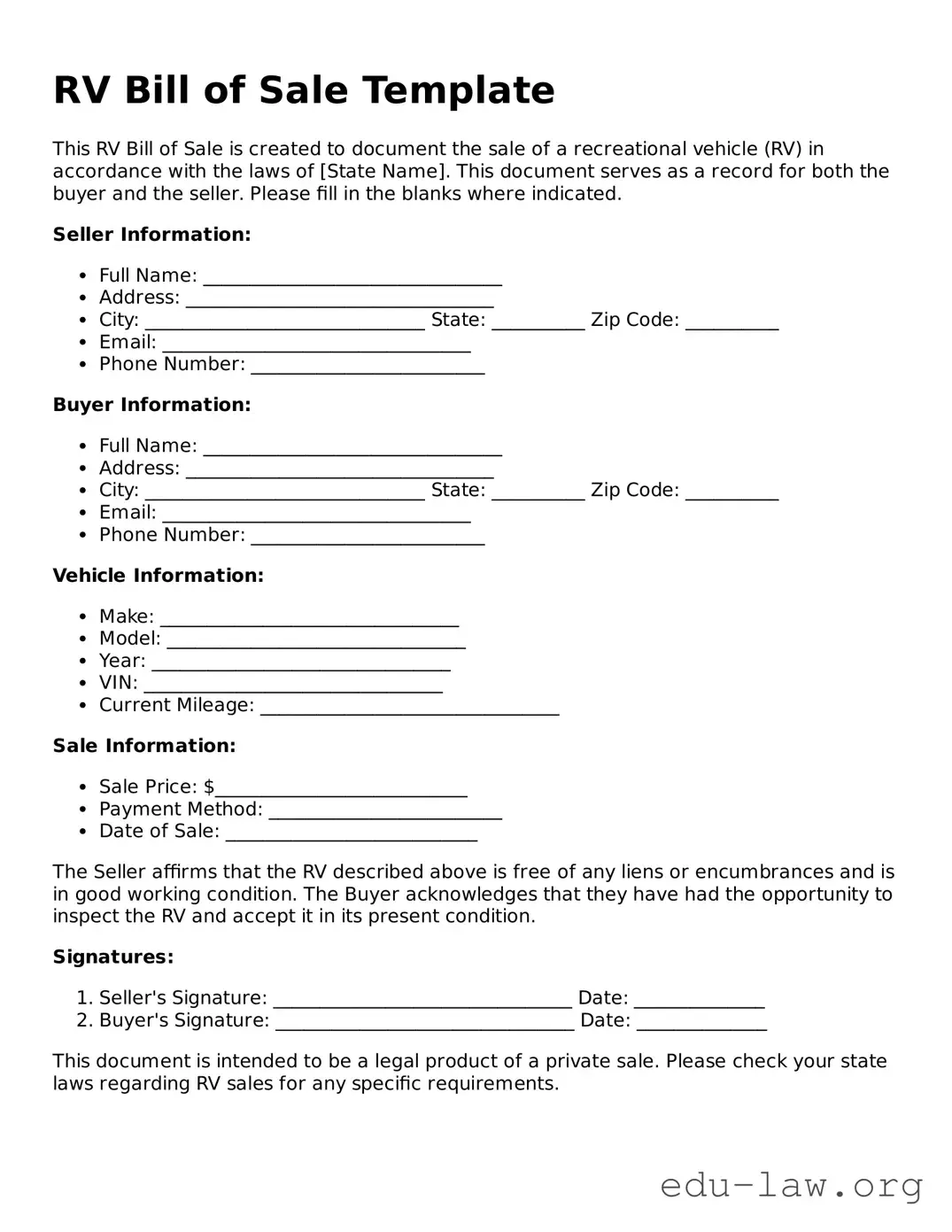What is an RV Bill of Sale?
An RV Bill of Sale is a legal document that records the transfer of ownership of a recreational vehicle. It provides proof that the transaction occurred and outlines the details of the sale, including the names of the buyer and seller, the vehicle's identification number (VIN), and the purchase price.
Why do I need an RV Bill of Sale?
This document is essential for several reasons. First, it serves as a receipt for the transaction, confirming that the buyer has purchased the RV from the seller. Additionally, it may be required to register the RV with the Department of Motor Vehicles (DMV) or to obtain title transfer. It also protects both parties in the event of a dispute.
What information is included in an RV Bill of Sale?
An RV Bill of Sale typically includes the names and addresses of both the buyer and seller, the RV's make, model, year, and VIN, the sale price, and the date of sale. It may also include any warranties or guarantees, as well as a statement indicating that the RV is free of liens.
Is an RV Bill of Sale required by law?
While laws vary by state, many states do require a Bill of Sale when registering a vehicle or transferring title. It is advisable to check your local regulations to understand what is necessary to complete the sale and ensure a smooth transition of ownership.
Can I create my own RV Bill of Sale?
Yes, you can create your own RV Bill of Sale, but it's important to ensure that it includes all necessary information and complies with your state’s requirements. There are many templates available online that can help you include all pertinent details and cover all legal aspects.
What if the RV has a loan or lien on it?
If there is a loan or lien on the RV, the seller should ensure that the debt is paid off before the sale. If not, the lienholder must be informed and may need to release the lien before the transfer of ownership can occur. The Bill of Sale should clearly state the status of any liens or loans to avoid issues later.
Do I need to get the RV Bill of Sale notarized?
Not all states require notarization of the RV Bill of Sale, but having it notarized can provide an additional layer of protection for both parties. It verifies the identities of the signing parties and confirms that they willingly entered into the agreement.
What should I do after completing the RV Bill of Sale?
Once the RV Bill of Sale is completed and signed by both parties, both the buyer and seller should keep a copy for their records. The buyer should then take the document to their local DMV to register the RV and obtain a new title in their name. The seller may also want to notify the DMV to avoid future liability for the vehicle.
Where can I find a template for an RV Bill of Sale?
Templates for RV Bills of Sale can be found online through various legal and government websites. Many resources provide free or paid downloadable forms. Ensure that any template you choose meets your state's specific requirements to avoid complications later on.
